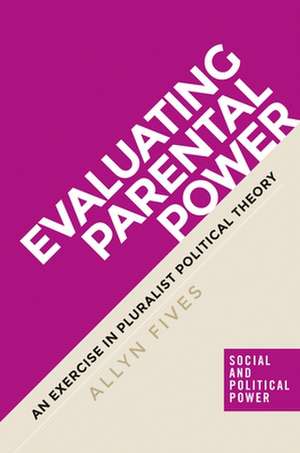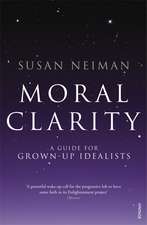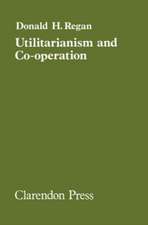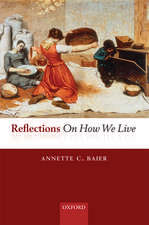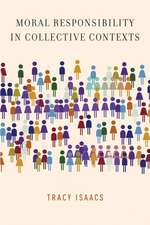Evaluating Parental Power: Social and Political Power
Autor Allyn Fivesen Limba Engleză Hardback – 21 iun 2017
Is parental power over children legitimate? And what role do both theoretical analysis and practical judgement play when we make such normative evaluations? While this book adds to the growing literature on parents, children, families and the state, it primarily focuses on one issue: the legitimacy of parents' power. It also seriously considers the challenge posed by moral pluralism, and analyses the role of both theoretical rationality and practical judgement in resolving moral dilemmas associated with parental power.
The book makes a number of conceptual and methodological innovations. Whilst parental power is usually conceptualised as a form of paternalism, this book shows that non-paternalistic parental power can be legitimate as well. Although such power is often assumed to involve interference with children's liberty, there is in fact a plurality of forms of parental power. And whilst political theorists offer general rules to resolve dilemmas arising between competing moral claims, it is demonstrated here that, in the evaluation of parental power, practical judgements are required in specific cases. A number of such cases of parental power are explored here at length, including parental licenses, children's informed consent, and civic education.
Preț: 724.71 lei
Preț vechi: 941.19 lei
-23% Nou
138.67€ • 144.78$ • 114.77£
Carte disponibilă
Livrare economică 14-28 martie
Specificații
ISBN-10: 1784994324
Pagini: 304
Dimensiuni: 156 x 234 x 27 mm
Greutate: 0.58 kg
Editura: MANCHESTER UNIVERSITY PRESS
Seria Social and Political Power
